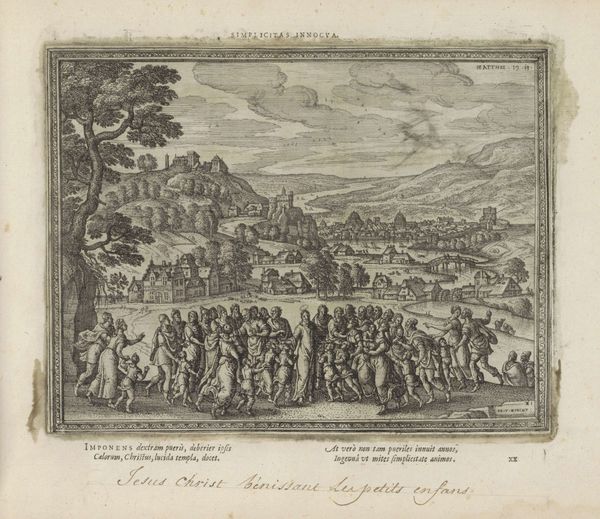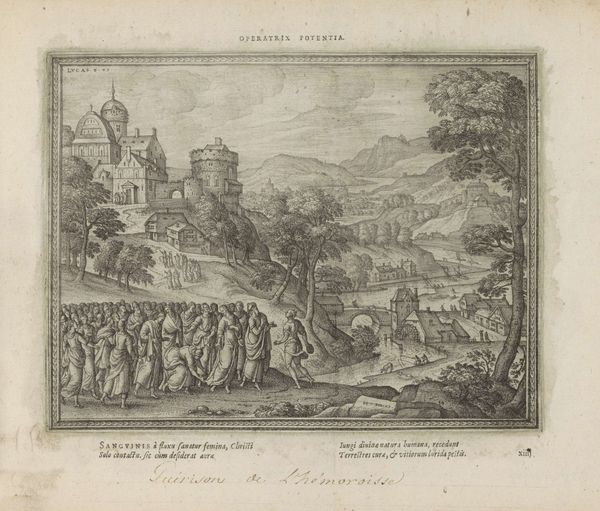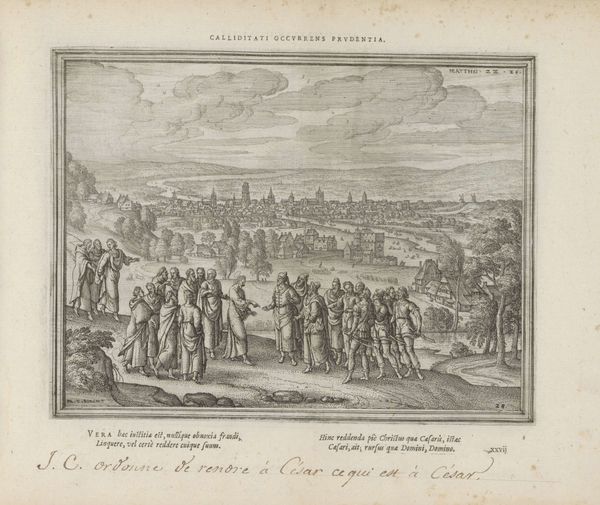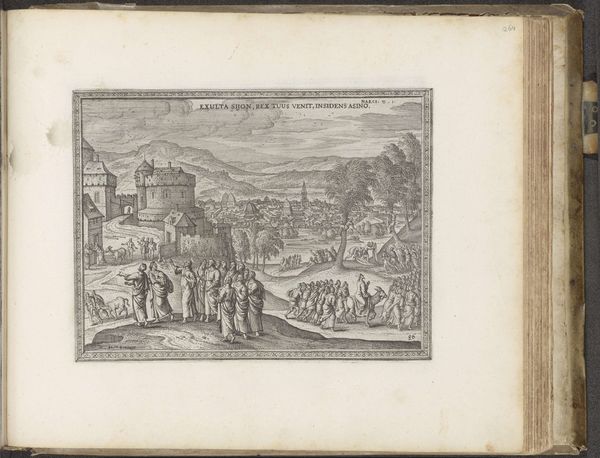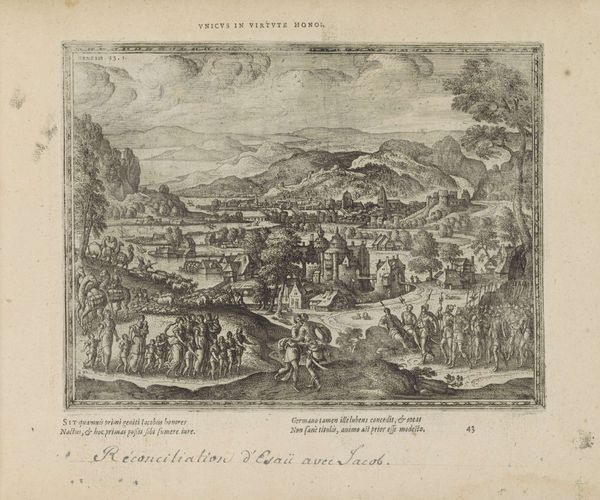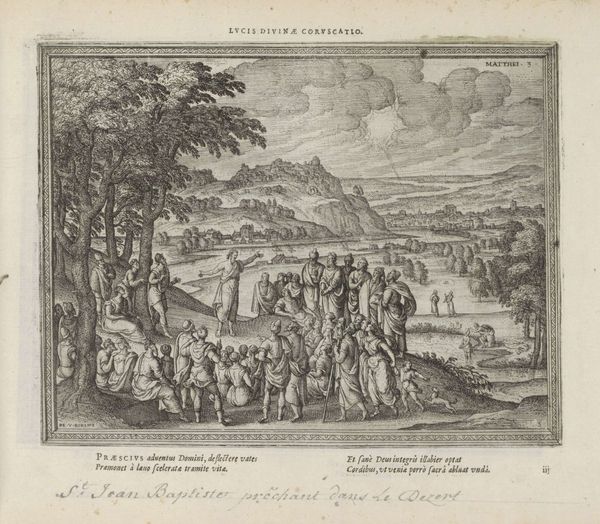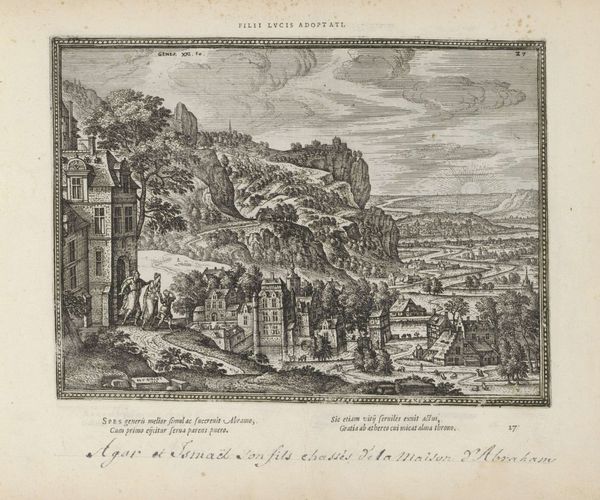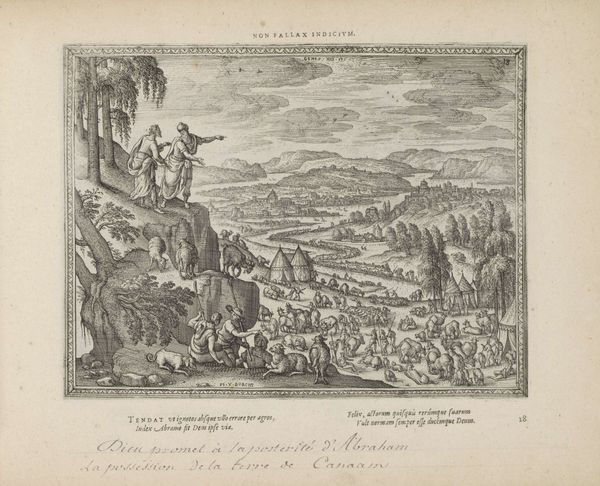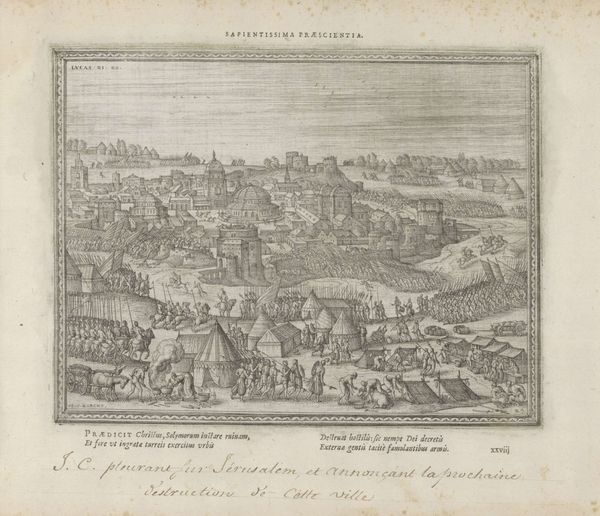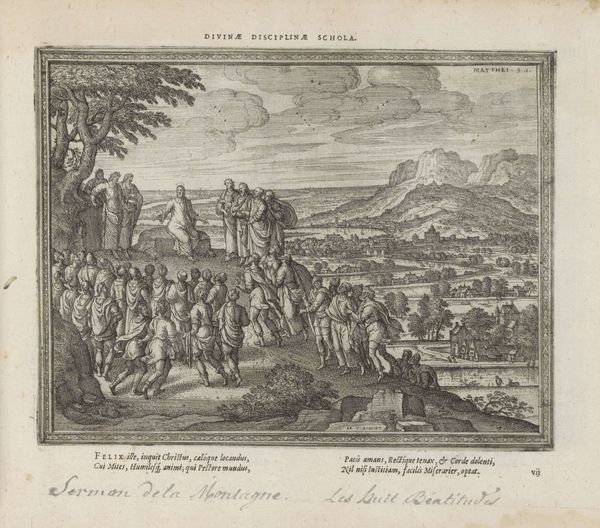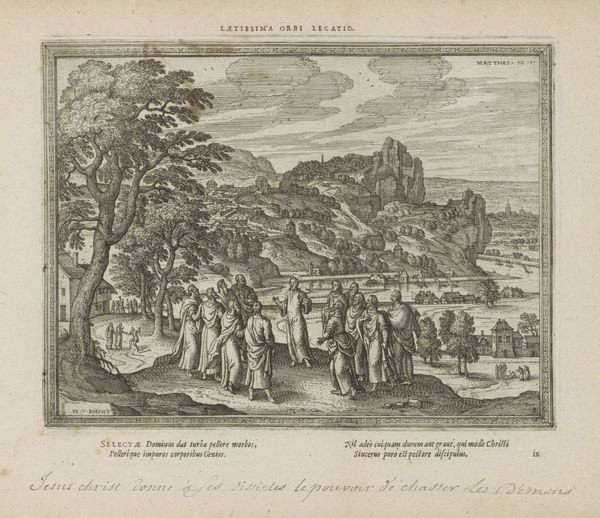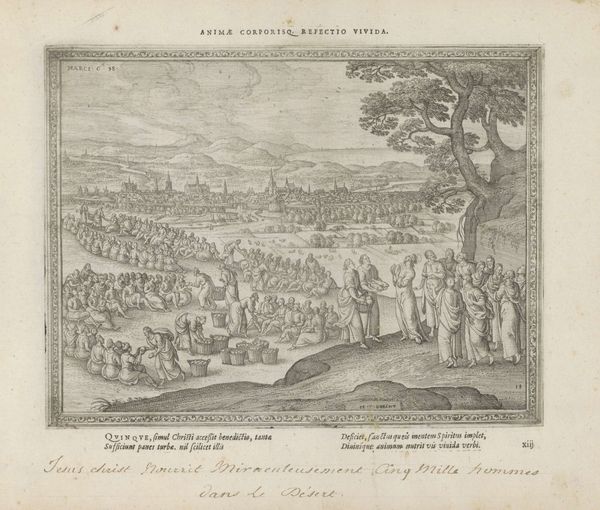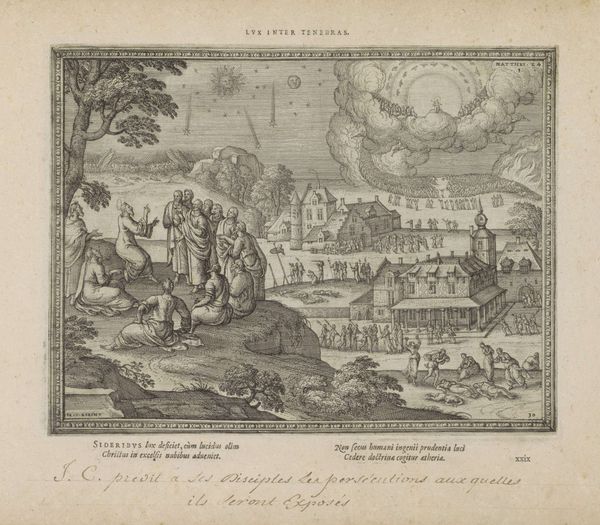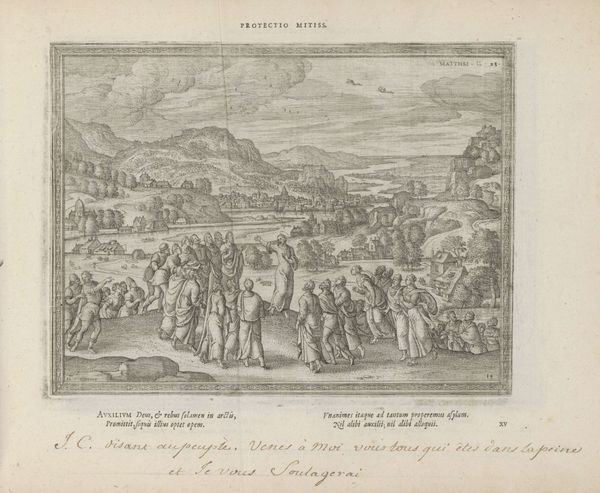
print, engraving
# print
#
old engraving style
#
landscape
#
11_renaissance
#
history-painting
#
northern-renaissance
#
engraving
Dimensions: height 185 mm, width 241 mm
Copyright: Rijks Museum: Open Domain
Editor: So, here we have Pieter van der Borcht the Elder's "Entry of Christ into Jerusalem," a print from somewhere between 1582 and 1613, housed at the Rijksmuseum. I’m immediately struck by how… busy it is, almost overwhelming in detail. What do you see when you look at it? Curator: Oh, I feel that "busy-ness" too, don’t you? It’s a fantastic sort of organized chaos. Look at how the artist crammed so many figures and architectural details, creating this incredibly detailed scene, while clearly making decisions around perspective. It feels almost stage-like, doesn't it? All those layers leading up to Jerusalem. I'm thinking, did Borcht intend a kind of… theatrical experience here? Almost a 'tableaux vivant' on paper. Editor: That's a great point! I hadn’t considered the theatrical aspect. It’s like he's setting a stage. And the text, kind of poetic inscriptions top and bottom. How does that affect the overall impression for you? Curator: The inscriptions are fascinating – snippets of text adding layers of meaning! They remind me of Renaissance emblem books, blending image and text for deeper reflection. Almost as if to ensure we don’t just witness, but also understand. Are we thinking, maybe, this piece nudges us not just to *see* Christ's arrival, but to grasp its theological *weight*? Editor: I think so! It encourages a much deeper look, making me appreciate it even more. I initially saw the detail as a bit much, but understanding its intention makes a real difference. Curator: Exactly! It is wonderful to unpack these visual narratives. It also hints at how important prints were – for communicating both events and ideas in the 16th and 17th centuries.
Comments
No comments
Be the first to comment and join the conversation on the ultimate creative platform.
